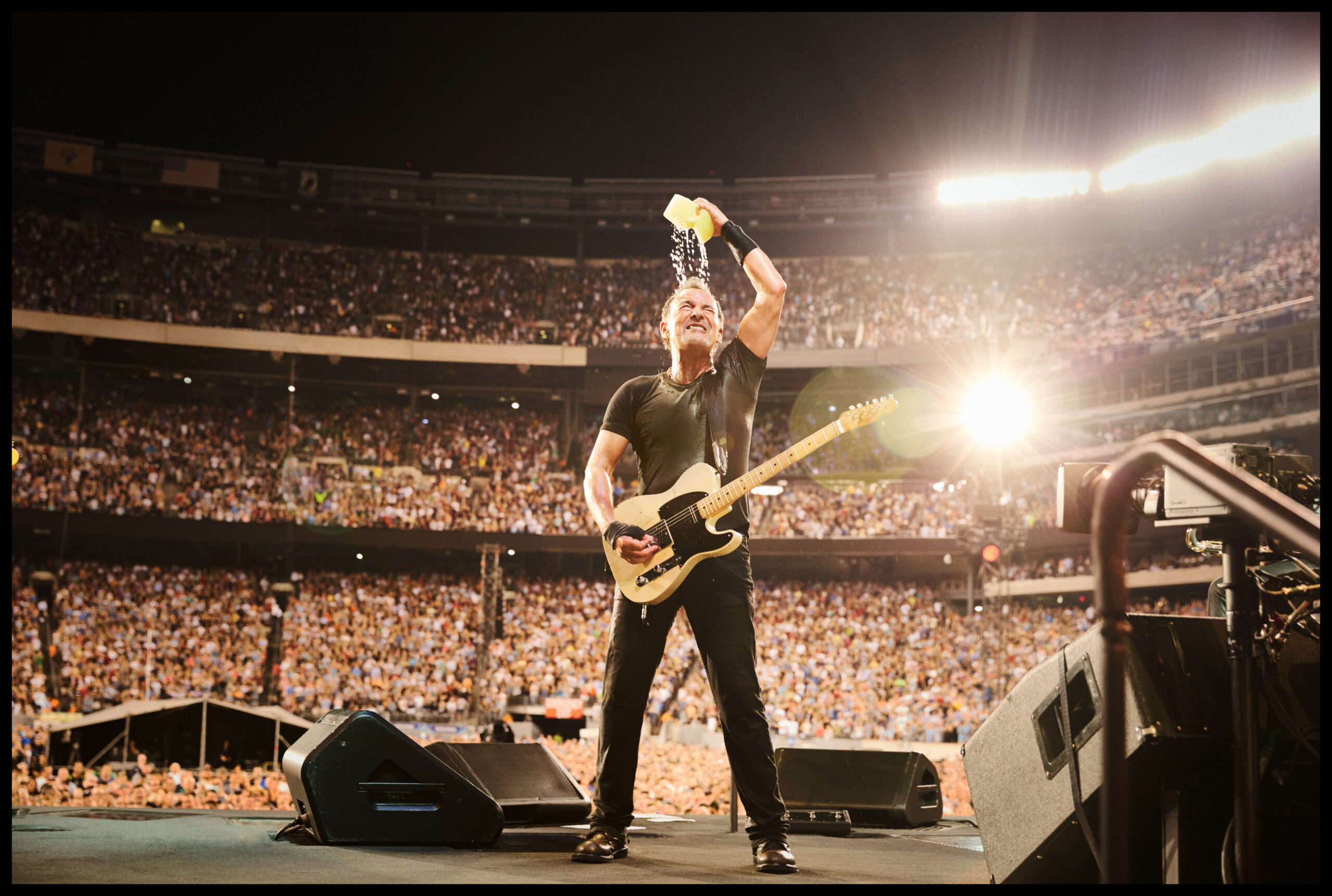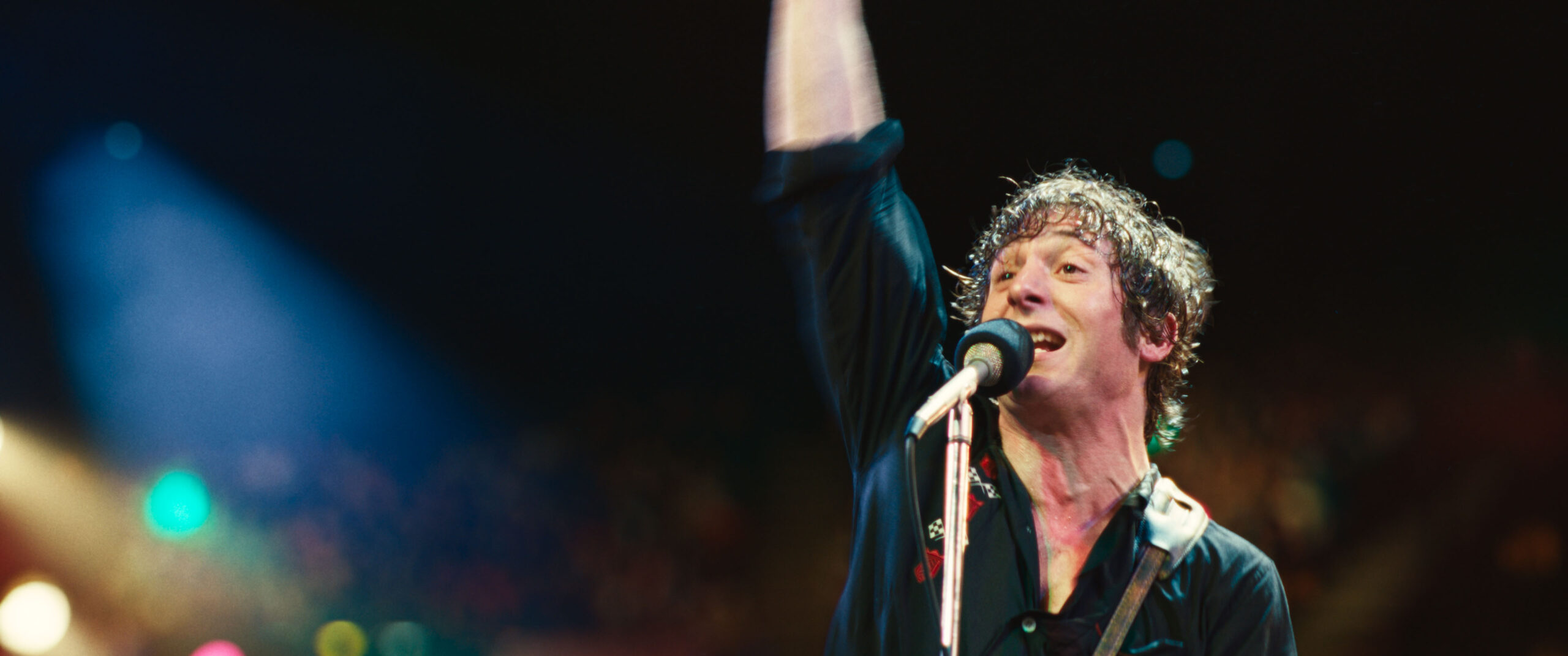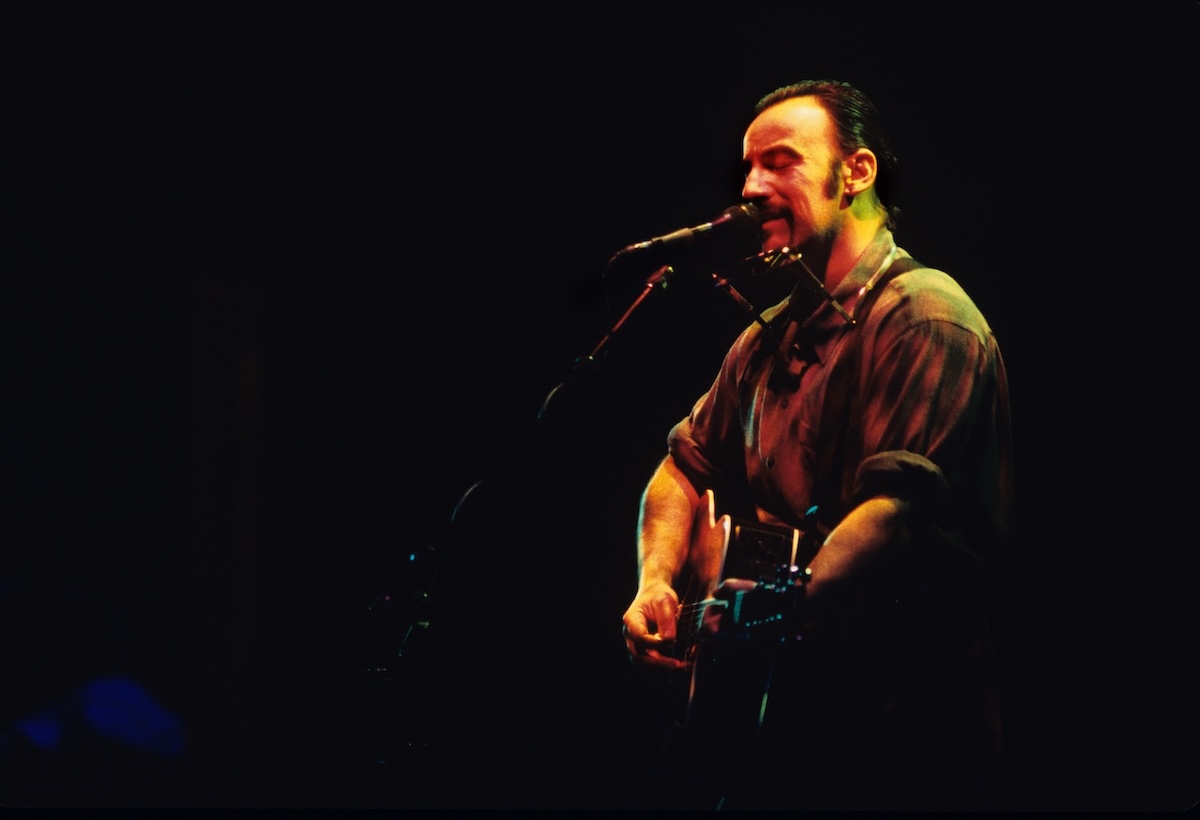Nebraska occupies a pivotal place in Bruce Springsteen’s catalogue, but for some that has never been enough. Ever since the legend of Electric Nebraska – Nebraska’s band-recorded alter ego – emerged, fans have wanted to unpick the knotty relationship between Nebraska and Born In The USA and hear electrified E Street versions of this sombre acoustic album.
Nebraska occupies a pivotal place in Bruce Springsteen’s catalogue, but for some that has never been enough. Ever since the legend of Electric Nebraska – Nebraska’s band-recorded alter ego – emerged, fans have wanted to unpick the knotty relationship between Nebraska and Born In The USA and hear electrified E Street versions of this sombre acoustic album.
As recently as June 2025, Springsteen was denying Electric Nebraska even existed – and nothing appeared on the recent, epic Tracks II set – but the mythical album is finally here, thanks to the deus ex machina of Deliver Me From Nowhere, a Bruce biopic that focuses on his angsty wrestling match between artistry and commerce (spoiler alert: he could have both).
Why do fans yearn to hear Electric Nebraska when the original album is already so good? Is there a nagging feeling it might have been even better? That Bruce was wrong? Or is it simply a desire to hear great songs in different clothes, to ponder the alternative history? The release of the Nebraska ’82 boxset brings some resolution, although different listeners have the right to draw opposing conclusions.
To these ears, an electric, or semi-electric, Nebraska would have been the equal of Darkness On The Edge Of Town. A classic, in other words, but not the curveball that allowed Springsteen to do whatever he wanted for the rest of his career. In delivering an intimate, DIY solo record of dark but outstanding storytelling, acclaimed by fans, critics and paying public alike, Springsteen earned the right to make radical decisions and take total control of his music with or without the E Street Band. The fact he used that freedom to make Nebraska’s polar opposite, Born In The USA, is particularly delicious.
As we all know, Nebraska originated in January ’82 as a tape of 14 homemade demos. Springsteen recorded some of the songs in April with the E Street Band at the Power Station, didn’t like the results and, almost apologetically and after much hand-wringing, released the demos instead. This set features tracks recorded with various combinations of Garry Tallent, Max Weinberg, Danny Federici, Roy Bittan and Stevie Van Zandt – the so-called Electric Nebraska – plus previously unreleased Nebraska outtakes, both from the original tape and follow-up acoustic studio sessions.
The story is completed with a live recording and film of Springsteen playing Nebraska this year in New Jersey, plus a remastered version of the album. Most fans will head straight to Disc Two – Electric Nebraska – to find jaw-dropping versions of “Atlantic City” and a cowpunk “Johnny 99”, on which the suppressed emotion of these songs boils over in riotous fashion. There’s also an astonishing, rampaging take of “Downbound Train” that might feature one of Springsteen’s greatest vocal performances and a leaner E Street Band that sound nothing like the stadium act they were about to become.
Of the others, “Nebraska” and “Mansion On The Hill” are excellent but, like the electric versions of “Reason To Believe” and “Open All Night”, they don’t match the atmosphere of the original Nebraska versions. The latter two are recorded as a power trio – Tallent, Weinberg, Springsteen – as is the roaring “Born In The USA”, the song not yet an anthem but thrilling all the same, with a PiL-like guitar line to accompany the desperate vocal.
Disc One begins with the acoustic version of “Born In The USA” familiar
from Tracks, with the howling vocal and drone that reflect Springsteen’s love of Suicide. One of several songs from the Nebraska demo that didn’t appear on the finished album, it remains a fascinating counterfactual to ponder what might have happened if this had been released in 1982 – it certainly would have avoided confusion about the message. It’s joined by two other enthralling versions of songs that ended up on Born In The USA – “Downbound Train” and “Working On The Highway” (the latter recorded at a later session).
The lusty “Pink Cadillac”, re-recorded with the E Street Band as the B-side to “Dancing In The Dark”, here sounds like something on Sun in 1956, while “The Big Payback” came out as a B-side for “Open All Night”. These are joined by four songs previously unreleased in any form. “Losin’ Kind” is a cousin of “Highway Patrolman”, which is why it didn’t make Nebraska despite its obvious strengths. An excellent story of rebels on the road with gorgeous licks of guitar, it was later rewritten as “Highway 29”. It covers similar ground to “Child Bride”, an early draft of “Working On The Highway” without the huge chorus.
The disc concludes with the rockabilly “On The Prowl” and “Gun In Every Home”, a gentle hymn evoking the paranoia of the American suburbs, then and now. Springsteen recorded these in a studio a couple of days after the band sessions, hoping to recreate the Nebraska vibe in a professional setting. “On The Prowl” is great, but “Gun In Every Home”, with its chorus of “two cars in each garage, and a gun in every home” is brilliant. This session also produced the version of “Working On The Highway” on this disc.
The remastered Nebraska album and Springsteen’s stately live performance – accompanied by Dylan sideman Larry Campbell and his own Charlie Giordano – complete the story, but the magic comes with the first two discs. They reveal that Nebraska would have been an incredible album if the electric versions of “Atlantic City”, “Johnny 99” and “Downbound Train” were included, but it wouldn’t be Nebraska – a mood, concept and statement. Similarly, Nebraska would have been enhanced by the acoustic “Born In The USA” or “Working On The Highway” – but then we wouldn’t have Born In The USA.
When you listen to these attempts to pep up songs destined for Nebraska and tone down those for Born In The USA, both albums make even more sense. Born In The USA bursts with the relief Springsteen must have felt at resolving the tension of Nebraska, allowing him to deliver an album that’s every bit its equal as an expression of his refusal to compromise. The Boss was right, and now we can finally hear his workings.
The post Bruce Springsteen’s Nebraska ’82: Expanded Edition – the myth is real! appeared first on UNCUT.






